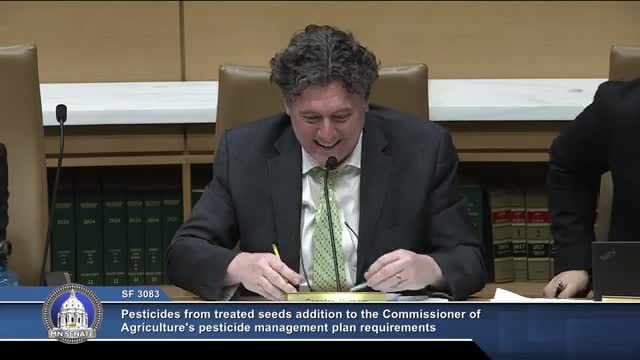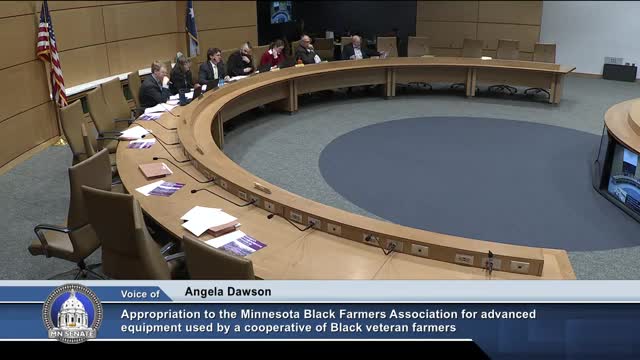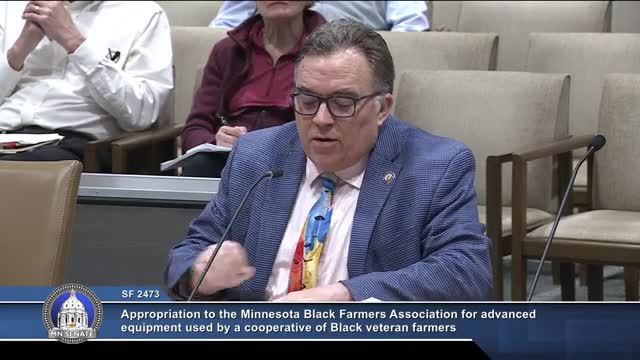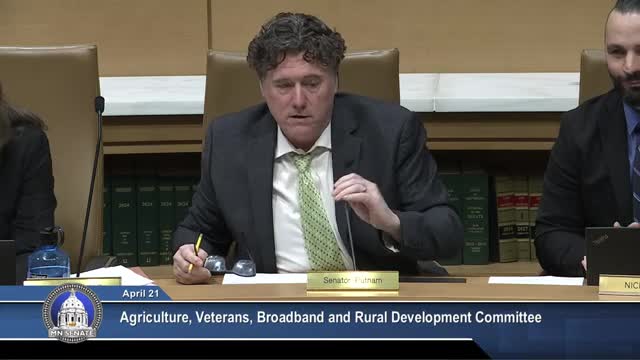Article not found
This article is no longer available. But don't worry—we've gathered other articles that discuss the same topic.

Committee hears testimony on restricting neonicotinoid‑treated seeds to protect pollinators and water (SF3083)

Senate panel reviews agrivoltaics, pollinator‑friendly solar and proposed specialty license plate funding (SF2653)

Proposal seeks $2.5 million to help Black farmers, veterans buy equipment and build capacity (SF2473)

